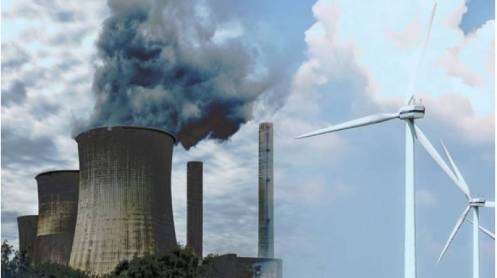ISLAMABAD: In a landmark move, Pakistan has become the first South Asian country to formally join the global push for a Fossil Fuel Non-Proliferation Treaty (FFNPT)—a bold initiative aiming to end the expansion of oil, gas, and coal production while facilitating a global transition to clean energy through cooperation, financial aid, and technology transfer.
Pakistan’s entry into the treaty movement in December 2024, alongside climate-vulnerable nations like Vanuatu, Colombia, and The Bahamas, was hailed as a major shift in global climate diplomacy. With over 120 cities, 3,000 scientists, and 100 Nobel laureates backing the initiative, the country’s commitment was seen as a powerful moral stand—especially given its vulnerability to climate disasters like the 2022 floods, which displaced 33 million people and caused over \$30 billion in damage.
But the move has stirred controversy and criticism at home and abroad.
Despite its global stance, Pakistan remains deeply dependent on fossil fuels, with coal, oil, and gas making up 64% of its energy mix. While advocating for a fossil fuel phase-out internationally, the country has quietly approved new coal and gas projects in Thar and Balochistan. This contradiction has not gone unnoticed.
“Pakistan talks about climate justice on the global stage, yet continues to displace local communities for new coal plants,” said Karachi-based energy analyst Sughra Shah. “You can’t demand fairness from the global North while maintaining injustice at home.”
Activists argue the government is leveraging the treaty for climate finance without committing to meaningful domestic reforms. At the Bonn Treaty Symposium in June 2025, Pakistani negotiators called for grant-based climate aid, rejecting loan-based solutions that increase debt. With external debt nearing \$130 billion, Pakistan has positioned itself as a key voice for rethinking global climate finance.
“We’re not asking for charity,” said Romina Khurshid Alam, Prime Minister’s Coordinator on Climate. “We’re asking for justice—for partnership.”
However, critics say justice must start at home. Despite highlighting solar and hydropower projects, Pakistan’s renewable energy expansion remains sluggish, and fossil fuel subsidies persist. There is also growing mistrust at the grassroots level, where communities affected by mining and pollution are often excluded from policymaking.
“The symbolism is powerful,” noted Dr. Abid Suleri, Executive Director of the Sustainable Development Policy Institute. “But it must translate into real policy shifts. Otherwise, it’s just rhetoric.”
Pakistan is expected to play a leading role in shaping treaty discussions on debt relief, loss and damage, and just transition, with a draft treaty text expected in 2026. The country’s leadership could potentially influence regional peers like Bangladesh and Nepal to join the initiative.
Yet the core question remains: Can Pakistan, a country grappling with energy insecurity, weak governance, and growing fossil fuel demand, lead a treaty meant to phase them out?
For now, Pakistan walks a delicate line between ambition and action. The world is watching to see whether its climate commitments are more than diplomatic theater—whether they will be reflected not just in speeches and treaties, but in real, on-the-ground transformation.
Story by Mujeeb Ullah







